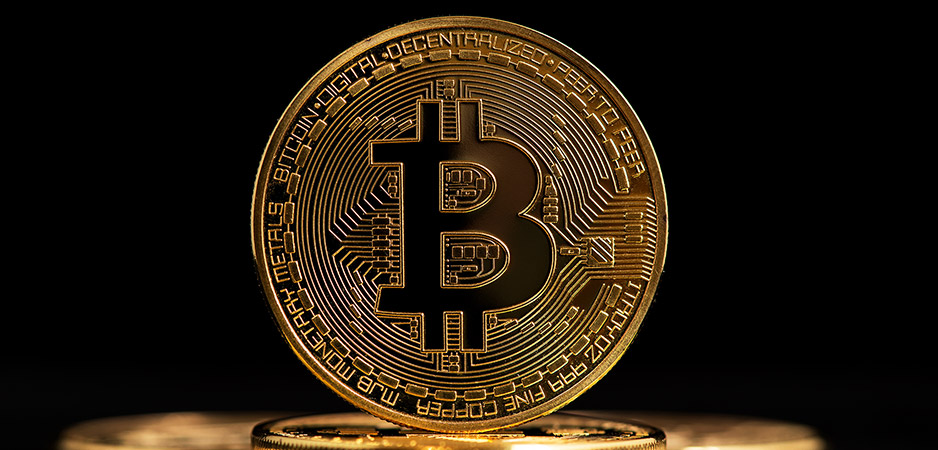Silicon Valley billionaire Peter Thiel finds himself in a confusing moral quandary as he struggles to weigh the merits of his nerdish belief in cryptocurrency against his patriotic paranoia focused on China’s economic rivalry with the United States. Participating in “a virtual event held for members of the Richard Nixon Foundation,” Thiel, while reaffirming his position as a “pro-Bitcoin maximalist,” felt compelled to call his faith into doubt due to his concern that China may use bitcoin to challenge US financial supremacy.
How to Relax in a Field and Marvel at the Universe
According to Yahoo’s Tim O’Donnell, Thiel “thinks Beijing may view Bitcoin as a tool that could chip away at the dollar’s might.” He directly quotes Thiel who wonders whether “Bitcoin should also be thought [of] in part as a Chinese financial weapon against the U.S.”
Today’s Daily Devil’s Dictionary definition:
Financial weapon:
The role any significant amount of money in any one person’s, company’s or nation’s hand is expected to play to assert power and obtain undue advantages in today’s competitive capitalism
Contextual Note
Thiel may be stating the obvious. Money is power and concentrations of money amount to concentrated power. The point of power is to influence, intimidate or conquer, depending on how concentrated the power may be. It is ironically appropriate that the event at which Thiel spoke was organized by the Nixon Foundation. Richard Nixon was known for putting the quest for power above any other consideration. He was also known for opening the relationship with China, which many Republicans today believe led to a pattern of behavior that allowed China to eventually emerge as a threat far more menacing than the Soviet Union during the Cold War. Nixon was also the president who destroyed the Bretton Woods system that set the financial rules ensuring stable international relations in the wake of World War II.
Thiel’s thoughts are both transparently imperialistic. They follow Donald Trump’s “America First” logic, while at the same time revealing Thiel’s uncertainty about how to frame it in the context of Bitcoin. His version of “America First” has less to do with the Trumpian idea that America should worry first about its own internal matters and later deal with the world than with the idea of the neocon conviction that the US must impose itself as the unique hegemon in the global economy. In Thiel’s mind, this sits uncomfortably alongside his made-in-Silicon Valley belief that cryptocurrencies represent the trend toward something that might be called “financial democracy.”
According to O’Donnell, Thiel “explained that China isn’t fond of the fact that the U.S. dollar is the world’s major reserve currency because it gives the U.S. global economic ‘leverage,’ and he thinks Beijing may view Bitcoin as a tool that could chip away at the dollar’s might.” O’Donnell is guilty of somewhat hypocritical understatement when he claims that it is all about China not being “fond of” the dollar’s status as the world’s major reserve currency. Who besides the US would be “fond of” such a thing? Those are O’Donnell’s words, not Thiel’s. As for the idea that Bitcoin might chip away at the dollar’s might, Thiel avoids making that specific point and prefers a more vaguely paranoid reading of events as he suggests a kind of plot in which China may be using Bitcoin to undermine US hegemony.
Thiel’s phrasing places him clearly in the realm of what might be called diplomatic paranoia. He begins with a statement of speculative uncertainty as he expresses his concern with China’s turning Bitcoin into a financial weapon. Here are his exact words: “I do wonder whether at this point Bitcoin should also be thought in part of as a Chinese financial weapon against the US where it threatens fiat money but it especially threatens the US dollar and China wants to do things to weaken it.”
“I do wonder whether at this point Bitcoin should also be thought … of” expresses a deviously framed insinuation of evil intentions by a Fu Manchu version of the Chinese government. This is a popular trope among Republicans and even Democrats today, who vie with each other to designate China as an enemy rather than a rival. But Thiel’s admission that it’s really about “wondering” tells us that we are closer to Alice’s Wonderland than to the CIA book of facts.
Thiel then adds the temporal detail of “at this point,” which introduces a surreal notion of time that has more to do with a fictional dramatic structure than the reality of contemporary history. It is tantamount to saying: This is where the plot thickens. And his suggestion of how it “should be thought of,” besides being manipulative, indicates that we are invited into accepting the plot of a paranoid fantasy made up of thought rather than reality.
He then explains what he means by “a Chinese financial weapon against the US.” Though he claims to be a believer in the unfettered freedom of cryptocurrency, he accuses it of violating what might be called “the rule of law” insofar as “it threatens fiat money,” which is the privilege of every nation on earth. But that worry has little merit compared to the fact it “especially threatens the US dollar,” which — it goes without saying — China wants to weaken.
Thiel knows where the money is. It lies in the primacy of the US dollar. That is why the US has 800 military bases across the globe.
Historical Note
Since the dismantling in 1971 of the Bretton Woods system by US President Richard Nixon — in whose name the Richard Nixon Foundation was created — the dollar has functioned as the ultimate and most devastating financial weapon in history wielded by a single government. The Bretton Woods agreement, signed in 1944 by 44 countries, allowed the dollar to play a controlled role as the world’s reserve currency thanks to its convertibility with gold. When the growing instability of the dollar, due in part to the Vietnam War, threatened the order established by Bretton Woods, Nixon unilaterally broke the link with gold. Instantaneously, the US was free to weaponize the dollar for any purpose it judged to be in its interest.
Nixon produced one of the greatest faits accomplis in history. As with many successful unnoticed revolutions, Nixon’s administration presented the uncoupling of the dollar and gold as a temporary measure, the response to a momentary crisis. It took two years for the world to notice that Bretton Woods had definitely collapsed. The era of floating currencies began. Money could finally be seen for what it is: a shared imaginary repository of value that could eventually become the focus of what Yuval Noah Harari has called the religion of capitalism in his book, “Money.”
For many people, Bitcoin has become a kind of alternative religion, or rather a vociferous radical sect on the fringes of the global religion of neoliberal capitalism. Bitcoin as a concept highlights the lesson brought home by the collapse of Bretton Woods: that the value of money people exchange, despite Milton Friedman’s objections, is literally based on nothing and therefore meaningless. That also means — though the faithful are not ready to admit it — that its value is infinitely manipulable. It appears to derive from economic reality but is anchored in little more than what a small group of people with excess cash may think of it on a given day. Elon Musk ostentatiously manipulated its value when he announced that Tesla had purchased $1.5 billion worth of bitcoin.
For anyone with billions to throw around, it’s an easy game to play. The manipulation by Musk, Peter Thiel’s former associate as co-founder of PayPal, doesn’t worry Thiel. Wondering about whether China might, in some imaginary scenario, use Bitcoin for nefarious purposes does trouble him.
Thiel represents our civilization’s new ruling elite. It consists of individuals who sit between two hyperreal worlds, one dominated by the mystique that surrounds means of payment (cash) and the control of financial flows, complemented by another that seeks political control and the hegemony required to enforce the now imaginary “civilized” rules governing financial flow. Since the demise of Bretton Woods, those rules have lost all meaning. That means the rules themselves can be weaponized. It’s a monopoly that Thiel, his fellow members of the Nixon Foundation and most people in Washington insist on reserving for the US.
*[In the age of Oscar Wilde and Mark Twain, another American wit, the journalist Ambrose Bierce, produced a series of satirical definitions of commonly used terms, throwing light on their hidden meanings in real discourse. Bierce eventually collected and published them as a book, The Devil’s Dictionary, in 1911. We have shamelessly appropriated his title in the interest of continuing his wholesome pedagogical effort to enlighten generations of readers of the news. Read more of The Daily Devil’s Dictionary on Fair Observer.]
The views expressed in this article are the author’s own and do not necessarily reflect Fair Observer’s editorial policy.
Support Fair Observer
We rely on your support for our independence, diversity and quality.
For more than 10 years, Fair Observer has been free, fair and independent. No billionaire owns us, no advertisers control us. We are a reader-supported nonprofit. Unlike many other publications, we keep our content free for readers regardless of where they live or whether they can afford to pay. We have no paywalls and no ads.
In the post-truth era of fake news, echo chambers and filter bubbles, we publish a plurality of perspectives from around the world. Anyone can publish with us, but everyone goes through a rigorous editorial process. So, you get fact-checked, well-reasoned content instead of noise.
We publish 2,500+ voices from 90+ countries. We also conduct education and training programs
on subjects ranging from digital media and journalism to writing and critical thinking. This
doesn’t come cheap. Servers, editors, trainers and web developers cost
money.
Please consider supporting us on a regular basis as a recurring donor or a
sustaining member.
Will you support FO’s journalism?
We rely on your support for our independence, diversity and quality.






